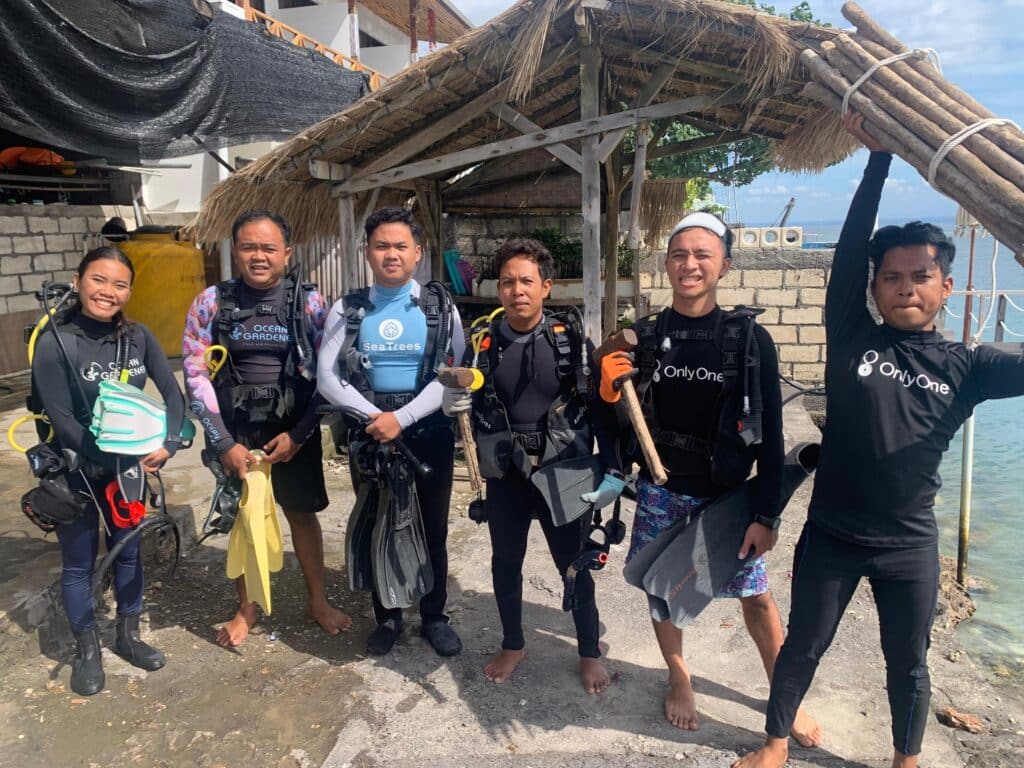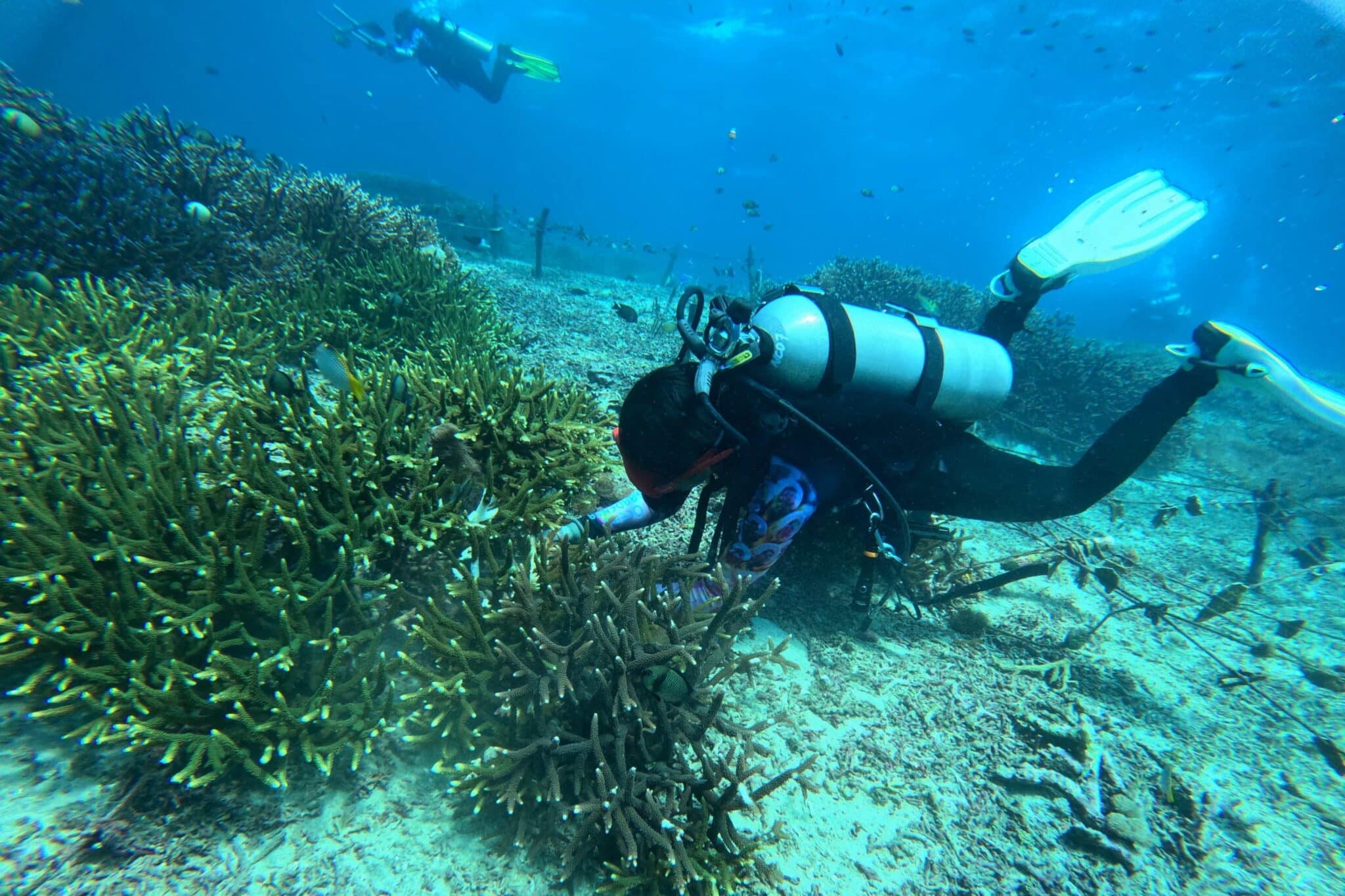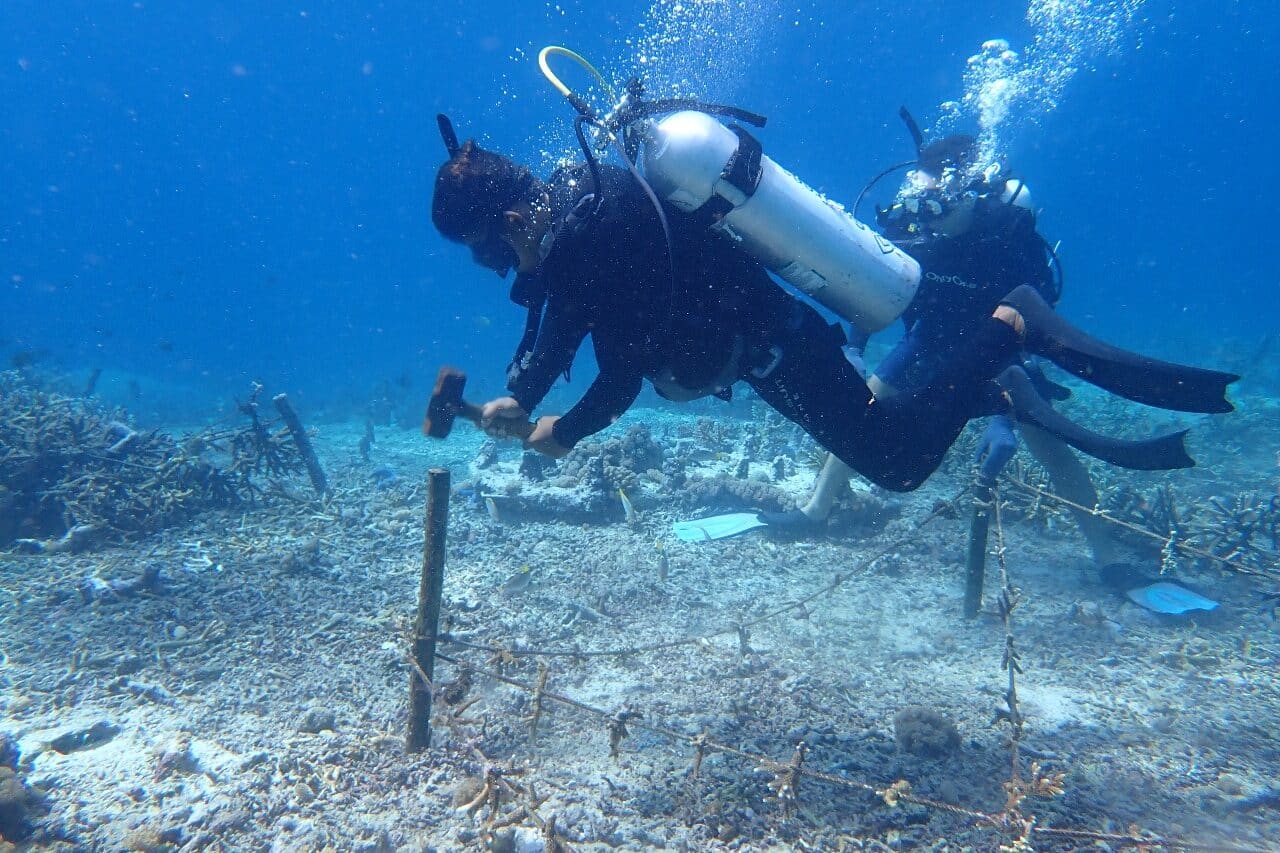Coral reef restoration is more than just planting fragments on the ocean floor. While many envision a simple “plant and forget” approach, the reality is a long-term commitment that requires consistent care, ongoing maintenance to improve survival, community involvement, and a deep respect for the marine ecosystem.
At Ocean Gardener, we believe that restoring coral reefs is not only about ecological recovery but also about creating lasting connections between people and the ocean. In collaboration with local communities in Bali and Nusa Penida, Ocean Gardener has planted over 200,000 coral fragments. But we believe that the true success of a restoration project lies not only in the number of corals planted, but in how well they are maintained over time.

Why Is Maintenance So Important?
Once the small and susceptible coral fragments are planted, they are like plant seedlings hence they are vulnerable to various environmental threats. Many of these degraded reefs we replant are also ecosystems out of balance, which may cause algae and coral predators to proliferate. Without regular maintenance, many of these delicate corals may not survive due to:
- Decline in water quality due to pollution or sedimentation. We can clear off the sedimentation and weed the overgrowth of algae that can smother the coral. High nutrient loads from sewage run-off from urban settlements fuel the growth of algae, which can quickly overgrow and kill the small fragments.
- Crown-of-thorns starfish (Acanthaster planci). Outbreaks are caused by nutrient runoff from land boosting phytoplankton levels that the starfish’s larvae feed. Meanwhile, overfishing of natural predators like the giant triton snail, titan trigger fish and various pufferfish allow their population to boom.
- Drupella snails. These snails are attracted to newly fragmented, stressed corals. Also, their natural predators like the Napoleon wrasse are often overfished from the reefs.
- Physical damage from strong currents or human activities. We can save the fragments and replant them to prevent them from getting smothered on the seabed.
At Ocean Gardener, we emphasize the importance of post-planting care as a vital part of our restoration methodology. Routine maintenance is crucial to support coral growth, improve survival rates, and ensure the long-term success of restoration efforts.

Local Communities: The Heart of Ocean Gardener’s Maintenance Program
One of the strongest pillars of Ocean Gardener’s approach is the active involvement of local communities. We believe that those who live closest to the ocean are also the most powerful stewards of its health especially when they feel a sense of ownership and pride.
That’s why Ocean Gardener works closely with local people in Bali and Nusa Penida, providing them with training in coral ecology, restoration techniques, and long-term reef monitoring. These community members are not just helping, they are leading many aspects of the maintenance process.
Their responsibilities include:
- Daily reef visits to observe coral growth and identify early signs of stress
- Manual cleaning of restoration structures, removing algae and sediment that can block light and smother coral fragments
- Repairing or reattaching coral fragments that may have been damaged by waves or marine activity
- Recording data on coral survival rates, growth patterns, and biodiversity recovery to inform future restoration strategies
- Monitoring and controlling predators, such as the crown-of-thorns starfish and drupella, by hand collection or early detection
- Educating other fishermen, students, and tourists about the importance of coral reefs and how to protect them
For many, this work has become more than just a job—it is a source of pride and identity. By involving locals in every step of the restoration and maintenance process, Ocean Gardener ensures that the reefs are not only restored but are also guarded and nurtured by the very people who depend on them.
These efforts also contribute to sustainable livelihoods, as community members develop new skills, create eco-based income opportunities, and help build a conservation-minded generation that will continue to protect these reefs into the future.

Nusa Penida: More Than a Scenic Destination
While Nusa Penida is known for its stunning underwater beauty, it is also home to dedicated individuals who have become active caretakers of the reefs through Ocean Gardener’s programs. With over 200,000 coral fragments planted, this effort has evolved into more than an environmental initiative—it has become a community-driven movement powered by shared knowledge and purpose.
Planting coral can take a day, but nurturing it takes ongoing dedication. At Ocean Gardener, we are proud to walk this journey with the local communities who now see the coral reefs not just as nature—but as something they have helped build, protect, and preserve.
You can come visit our restoration site to help support our efforts and fund our coral restoration work.